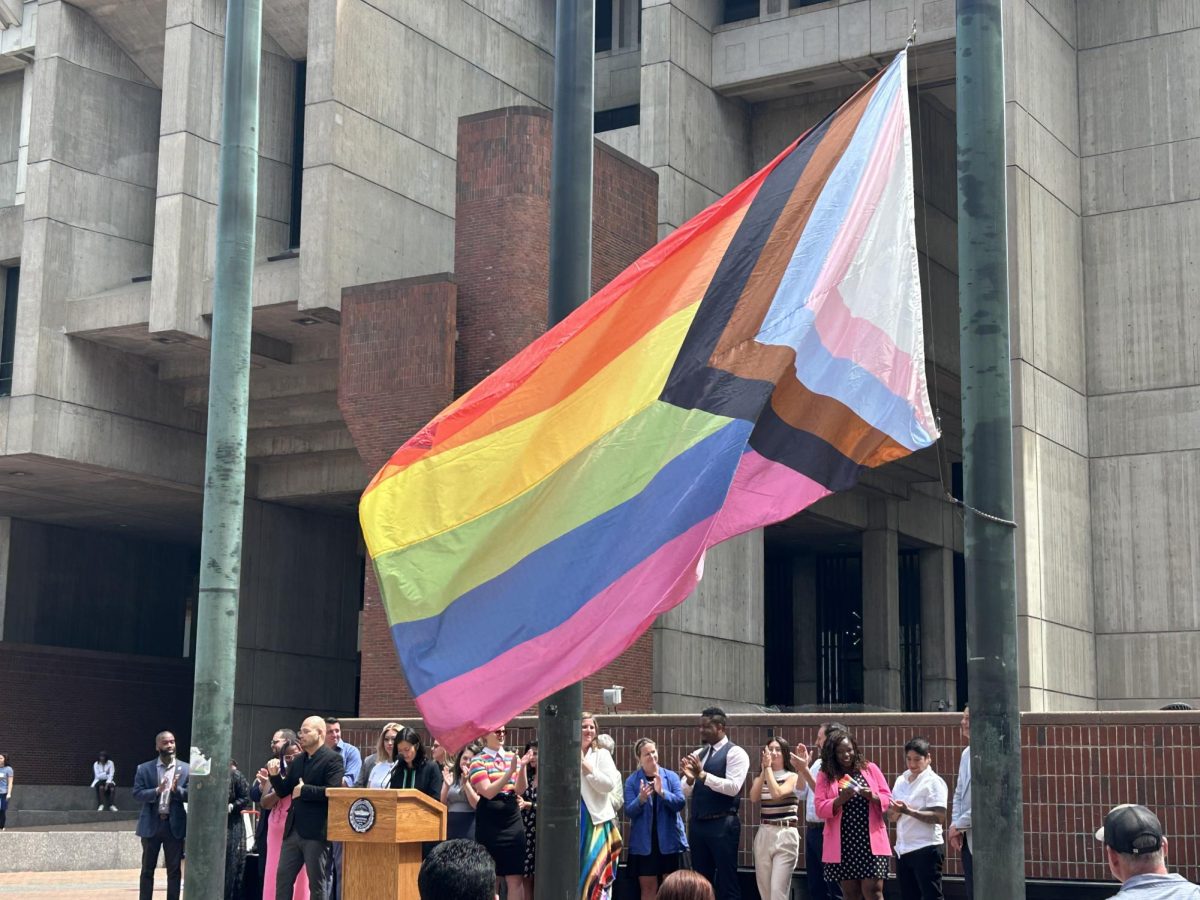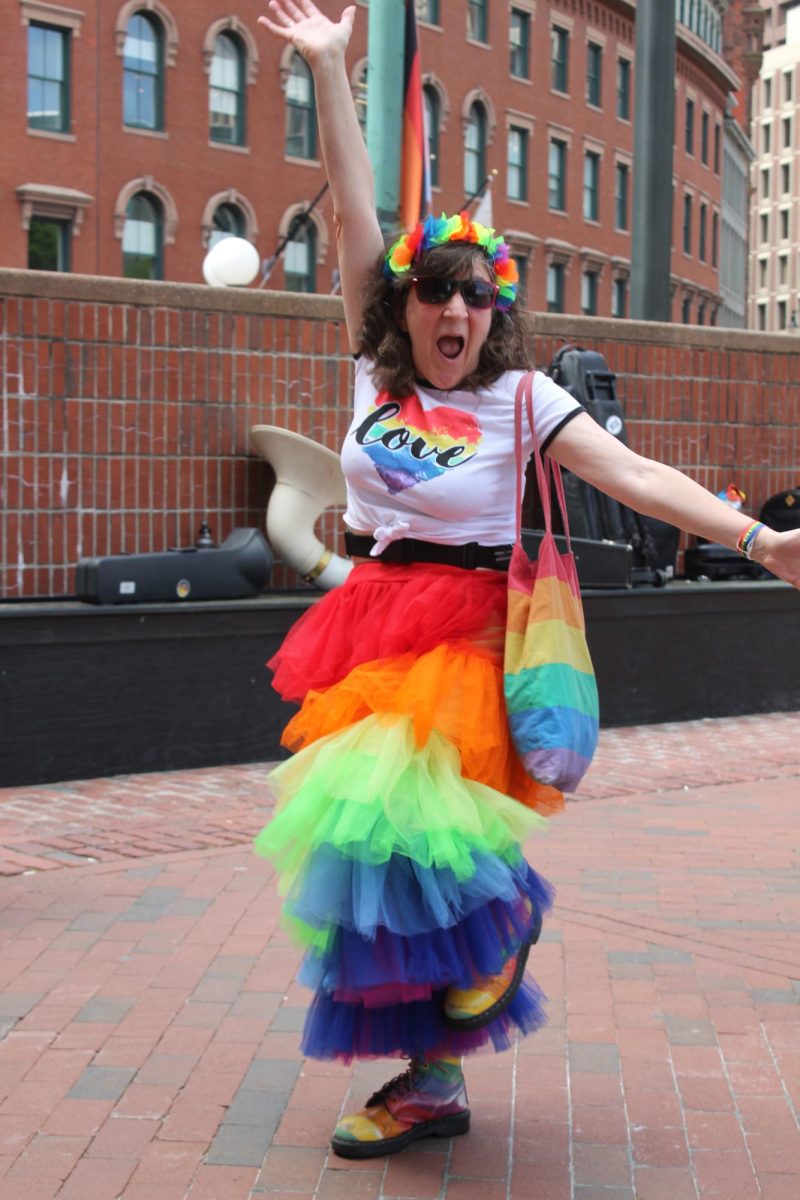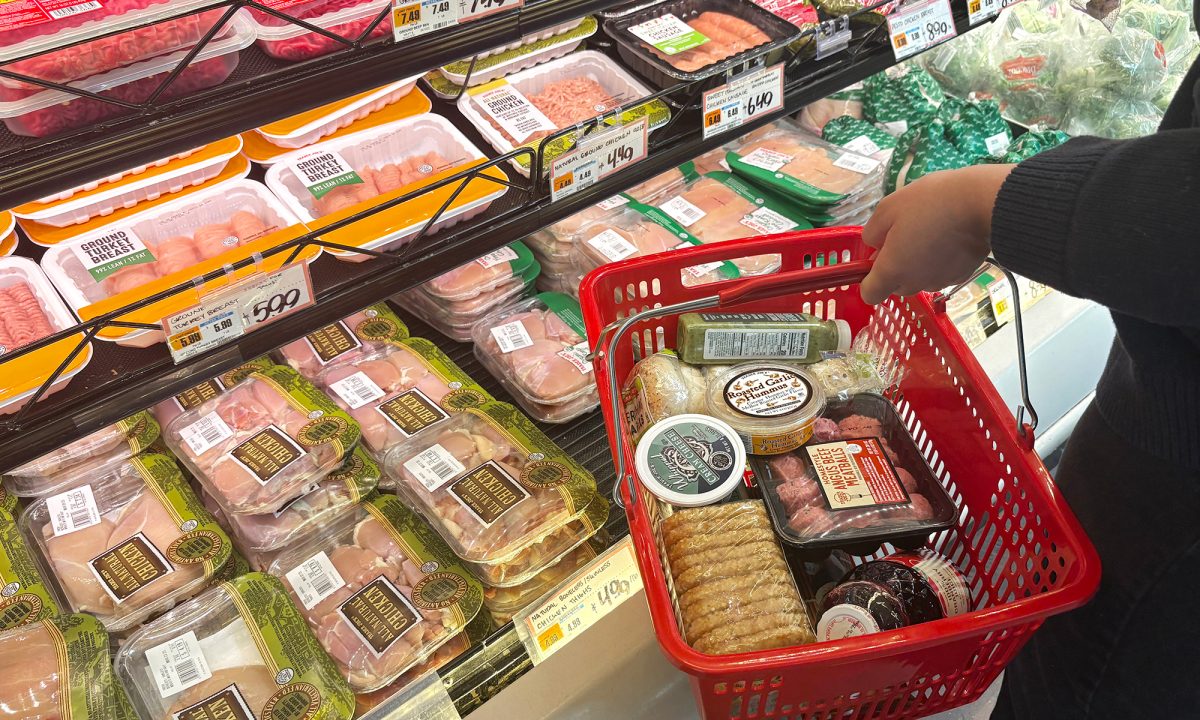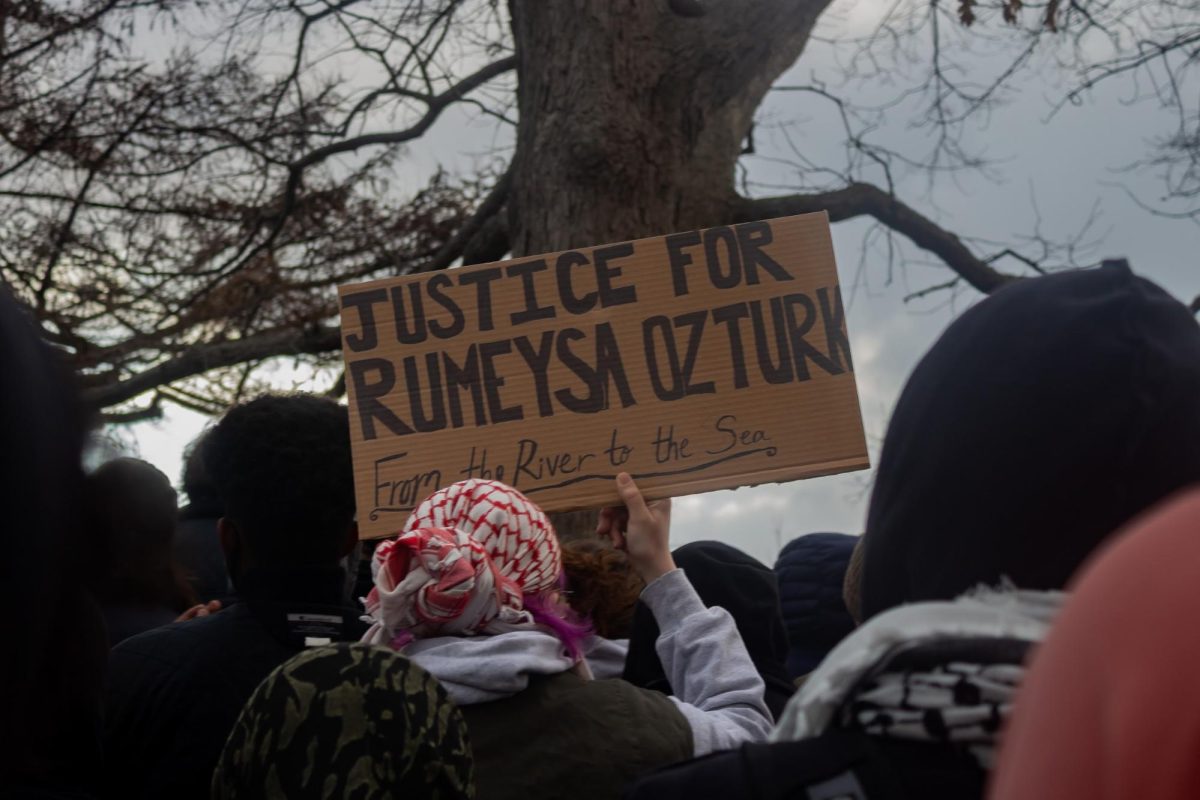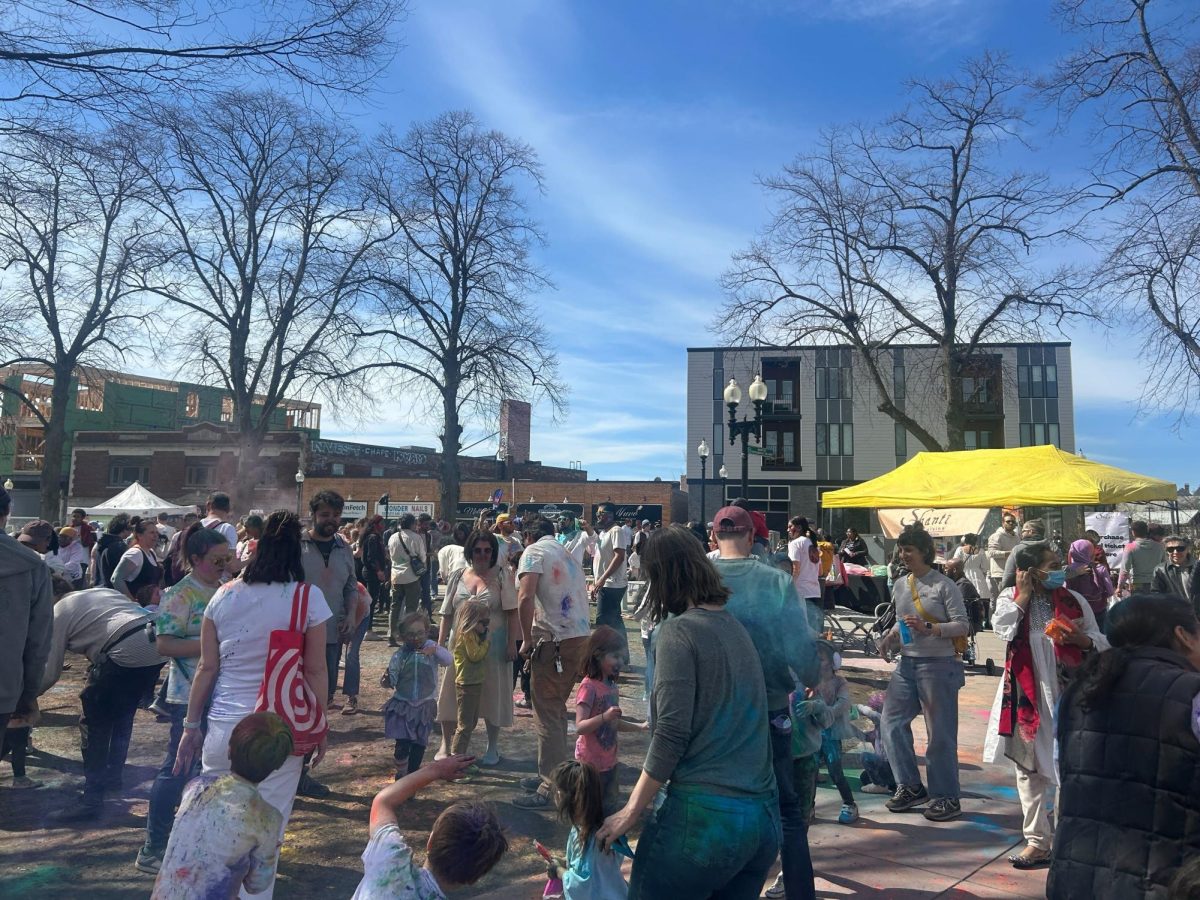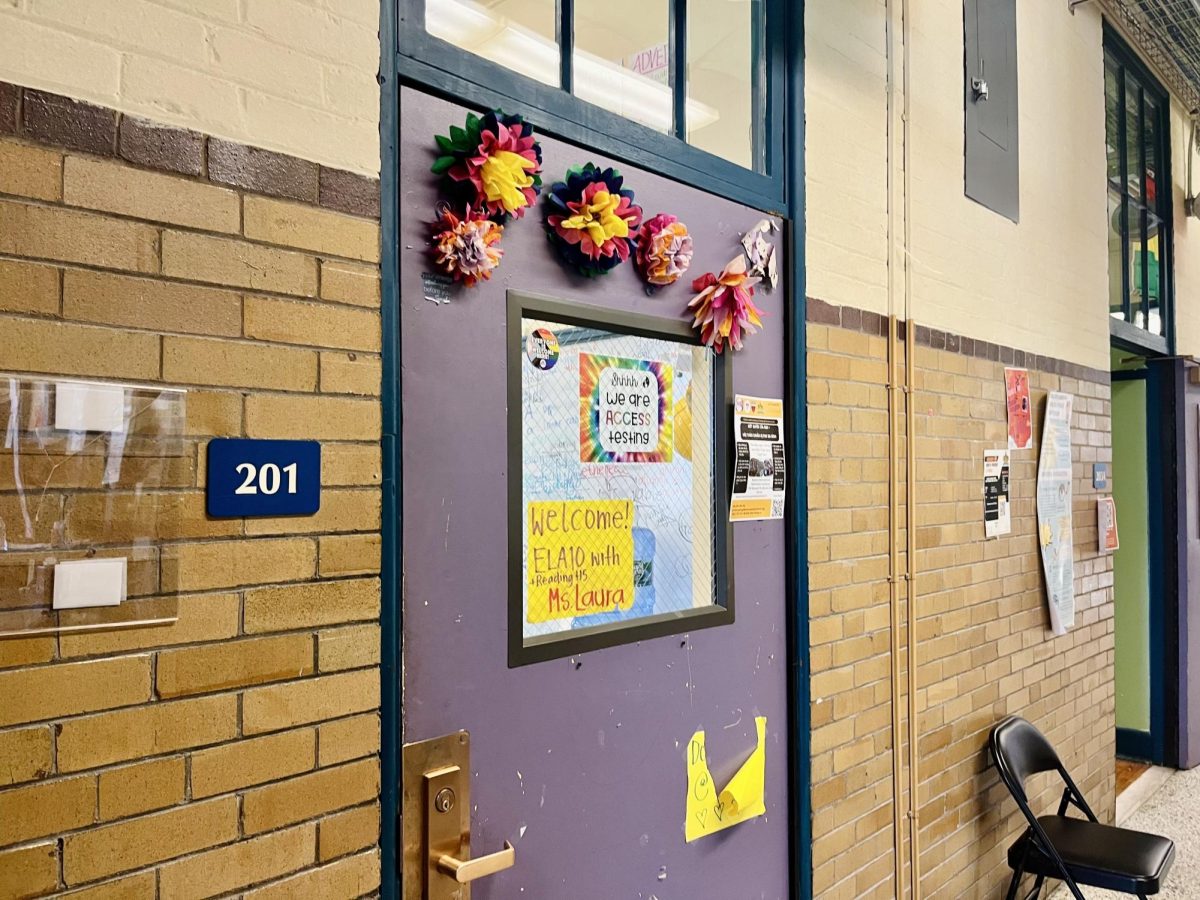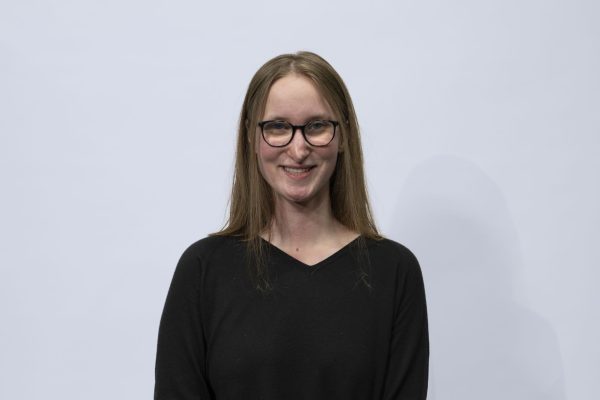Elected officials, community leaders and Bostonians dressed in all colors of the rainbow gathered outside City Hall Monday to attend the pride flag raising ceremony, kicking off the city’s celebration of 2024 Pride Month.
This year marks 20 years since Massachusetts became the first state in the country to legalize same-sex marriage. John Lewis, a long-time resident of Boston, said the city has come a long way from how he remembers it from his childhood.
“This would have never kicked off back in the day,” Lewis said. “Everybody used to be afraid, but now everybody comes out and they open up. You can’t judge people.”
Adrianna Boulin, president and organizing committee chair of Boston Pride for the People, gave the first speech. This year, she said Boston Pride for the People’s theme is “Still Here, In Living Color.”
“‘Still Here’ describes our bold, active and dedicated presence as LGBTQ+ communities,” Boulin said in her speech. “We are still here advocating for our right to exist and live as our authentic selves. ‘In Living Color’ describes our richness, our intersections, our nuance, our beauty and living loudly outside the binary and more. Many have come before us, have set the foundation and start the plane on the torch that may we all now carry forward in supporting our communities.”
Boulin and other speakers commemorated Ann Maguire, an LGBTQ+ rights, women’s health and healthcare access activist, who died last December. Maguire helped run the campaign for Elaine Noble, the first openly-gay Massachusetts elected official, in the 1970s. Noble served for two terms in the Massachusetts House of Representatives. Nearly 50 years after her first term in 1975, Massachusetts’ governor Maura Healey became the first lesbian elected governor in the United States in 2023.
“[This month] is an opportunity to reflect on the long and revolutionary history of Pride and the struggle that brought us to this moment,” Mayor Michelle Wu said to the crowd. “It has been a struggle firmly rooted in love and justice, and one that has blossomed into some of Boston’s most important moments throughout our history.”
In April, Wu awarded a $350,000 federal grant to the Transgender Emergency Fund — an organization created in 2008 focused on supporting low-income and homeless transgender people in Massachusetts. Since the Transgender Emergency Fund launched a transitional housing program in 2022, they secured permanent housing for over 20 transgender individuals, said LaKia Mondale, board president of the organization.
“I have firsthand knowledge of how housing can save someone’s life,” Mondale said in her speech. “Safe housing is the single most important thing that we can do to save trans lives. Thank you to Mayor Wu for saying to the trans community: ‘With this grant, this is your city, too. You are seen. You belong here. You matter.’”
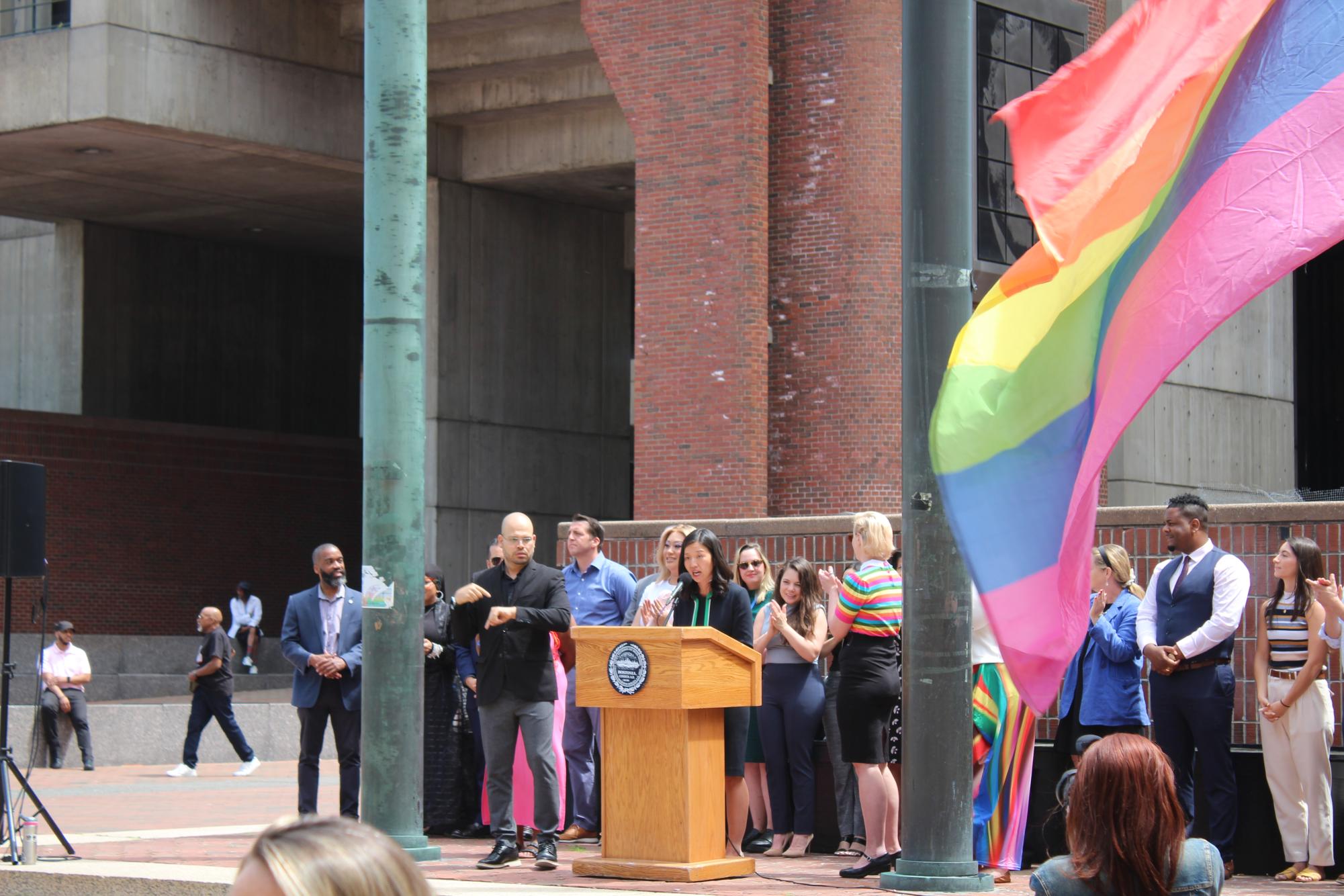
In an interview with The News, former District 7 City Councilor Tito Jackson, now CEO of the cannabis dispensary Apex Noire, said the success of a city as a whole can be gauged in the well-being of marginalized groups.
“I think we should really look at, ‘How is a Black, disabled, trans kid doing in our city?” Jackson said. “And if that young person is doing great, then we’re doing great as a city. If that person has impediments, obstacles, then we’re not doing right by them. We have a lot of work to do as a city.”
Toward the end of the speeches, Representative John Moran of the 9th Suffolk District took the stage to speak.
“It’s my second year as a state representative, as a public servant, and you start to think about pride very differently than you did as a private citizen or someone that wasn’t really thinking deeply about policy every day,” said Moran, the first openly LGBTQ+ member to represent the 9th Suffolk District. “We’ve made such great strides in the state of Massachusetts, especially here in the city of Boston. But we have some work to do.”
Moran said that an increase in book bans across Massachusetts districts and LGBTQ+ homelessness underscores problems that continue to impact residents.
“We do this work because we know that for Boston to truly be a home for everyone, it needs to be inclusive of everyone, a space where our LGBTQ+ residents are seen, supported and celebrated,” Wu said in her remarks. “We do this work in solidarity with our community, and we’re so excited to celebrate the progress that we’ve made as a city throughout the rest of this month.”



